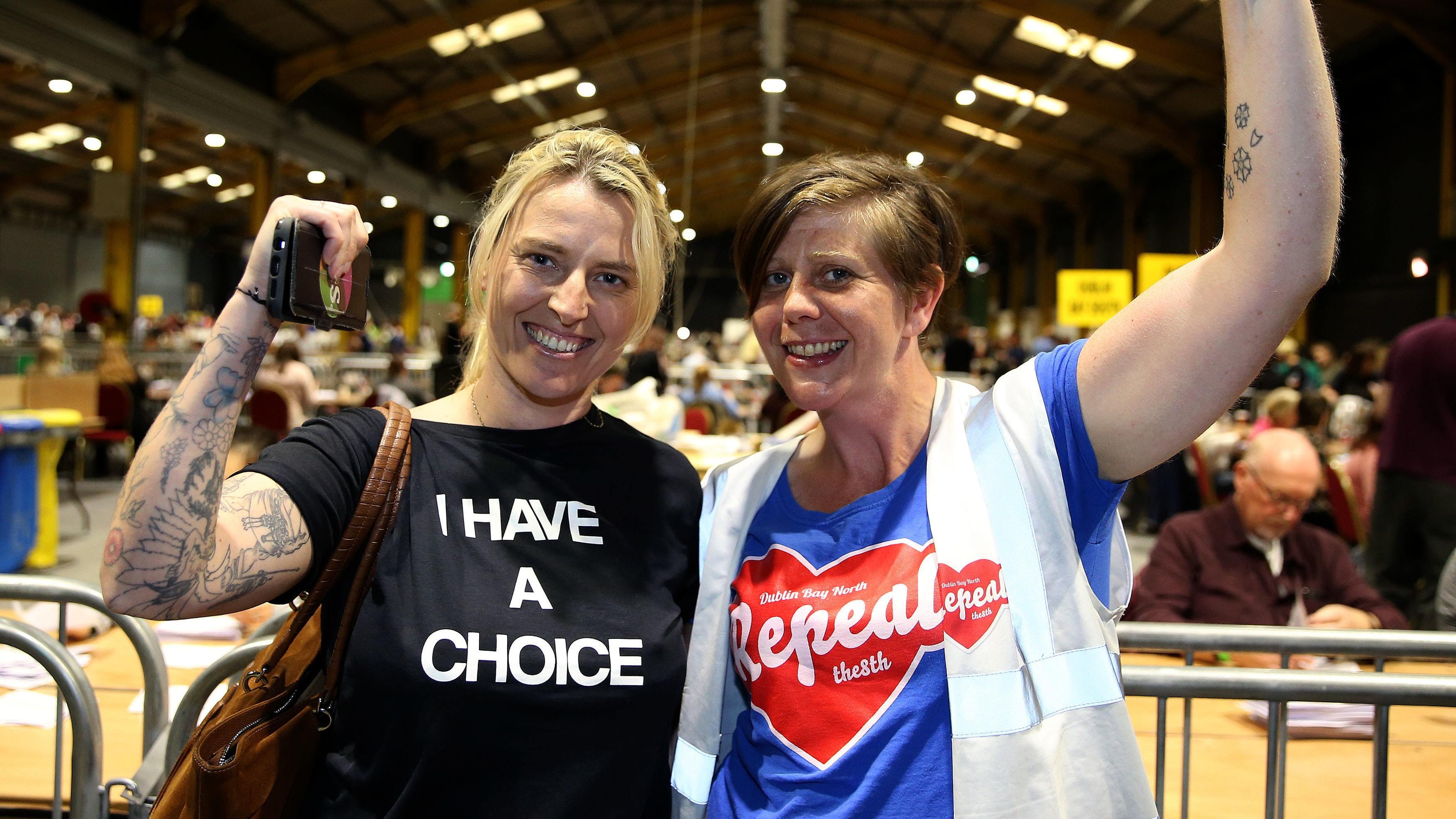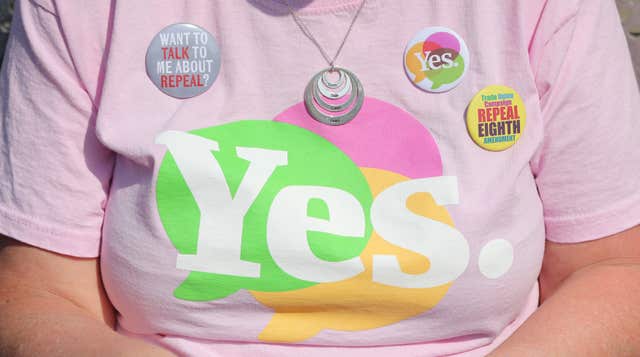IRISH Taoiseach Leo Varadkar said the country has voted resoundingly Yes to liberalise its strict abortion laws.
Mr Varadkar claimed Ireland was united – with men and women, nearly every age group and every social class opting for reform in Friday’s referendum.
He campaigned for the change, which he said represented the compassionate choice for women forced to travel to England for terminations or taking unregulated abortion pills.
He said: “The public have spoken, the result appears to be resounding in favour of repealing the Eighth Amendment, possibly to carry every constituency in the country.”

The first result, from Galway East in the rural west of Ireland, confirmed the trend predicted by exit polls as 60% voted Yes. Turnout was 63%.
With polling data suggesting seven out of 10 voters backed reform, campaigners in favour suggested it meant a moment of profound change – when the nation had collectively stood up for women and their healthcare.
"Under the Eighth Amendment, women in crisis pregnancy have been told: 'Take the plane or take the boat'. Today we tell them: 'Take our hand'." – Irish Health Minister @SimonHarrisTD #8thref pic.twitter.com/NpIP4uS5sI
— Sky News (@SkyNews) May 26, 2018
The vote saw citizens effectively opt to either retain or repeal the Eighth Amendment of the state’s constitution, which prohibits terminations unless a mother’s life is in danger.
Earlier, No campaigners conceded defeat.
Ireland’s opposition leader, Micheal Martin, also campaigned for Yes and has said his Fianna Fail party’s anti-reform parliamentarians will not block legislation enabling abortion which is expected to be passed by the end of the year.
With exit polls published, it looks like #8thRef has been emphatically passed. Important though that we respect and count every vote. If the exit polls are accurate, the view of our Republic is clear and we as an Oireachtas should move efficiently to enact the will of our people.
— Micheál Martin (@MichealMartinTD) May 25, 2018
Ministers have promised to allow terminations within the first 12 weeks, subject to medical advice and a cooling-off period, and between 12 and 24 weeks in exceptional circumstances.
Mr Varadkar added: “We are a country that is not divided, a country that says that we respect women, that we trust women and we support them.”
He said it was a mandate to bring forward legislation enabling the procedure.
“The people have said that we want a modern constitution for a modern country, that we trust women and we respect them to make the right decision and the right choices about their healthcare.”
Going over the numbers in Citywest. Final Tally: Dublin West Yes 74% No 26% pic.twitter.com/miV5Ot5ibl
— Leo Varadkar (@campaignforleo) May 26, 2018
The Irish premier said the results represented “the culmination of a quiet revolution”, one that had been taking place in Ireland for the past 10 to 20 years.
“The people have spoken.”
Emotional pro choice campaigners singing at Dublin Castle awaiting the formal announcement that Ireland has repealed the constitutional amendment that all but bans abortion in the state. #8thRef #HomeToVote pic.twitter.com/T71ZmEzdcu
— David Young (@DavidYoungPA) May 26, 2018
One exit poll by national broadcaster RTE suggested around 70% of the electorate have voted to end the country’s all but blanket ban on terminations, with another, by The Irish Times, recording 68% in favour of ditching the prohibition.
While the official result is not due until later on Saturday, it appears Ireland is on the cusp of a defining moment in its social history.
The Together For Yes organisation said: “This is a vote for dignity and decency.
“If exit polls are reflected in the official vote count later today, this will be a moment of profound change in Ireland’s social history, a moment when the nation collectively stood up for women and for their healthcare, and voted for constitutional change.”
A vocal anti-repeal movement conceded defeat.
The Save the Eighth group said: “What Irish voters did yesterday is a tragedy of historic proportions.
“However, a wrong does not become right simply because a majority support it.”
A decade after the Eighth Amendment was approved, women in Ireland were officially given the right to travel abroad, mostly to the UK, to obtain terminations.
Pro-repeal campaigners say almost 170,000 have done so.
The liberalisation campaign gathered momentum in 2012 after an Indian dentist, Savita Halappanavar, died in hospital in Galway aged 31 when she was refused an abortion during a miscarriage.
Her husband, Praveen Halappanavar, said she repeatedly asked for a termination but was refused because there was a foetal heartbeat.
In 2013, following an outcry over Mrs Halappanavar’s death, legislation was amended to allow terminations under certain tightly restricted circumstances.
When doctors felt a woman’s life was at risk due to complications from the pregnancy, or from suicide, they were permitted to carry out an abortion.
That did not sate the demand of pro-choice advocates.
Under pressure from the UN about alleged degrading treatment of women who travelled to England for terminations, the Irish Government began exploring the possibility of further reform, culminating in the calling of Friday’s referendum and the promise to legislate.

Enjoy the convenience of having The Sunday Post delivered as a digital ePaper straight to your smartphone, tablet or computer.
Subscribe for only £5.49 a month and enjoy all the benefits of the printed paper as a digital replica.
Subscribe
